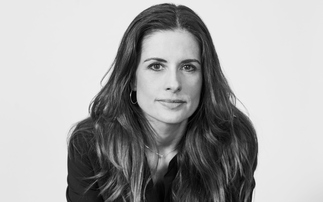The vast majority of CEOs are committed to taking action to tackle climate change for both moral and commercial reasons, but are they making action to cut emissions a board-level priority?
"An interest in green consumer demand has moved back up the agenda," says Williams. "It dropped down the list of priorities during the recession, but it is back... There's been a welcome shift in consumer attitudes where the myth that green products are more expensive or not as good quality is being challenged. The automotive and consumer goods sectors have played a big part in that."
However, if a majority of businesses now recognise action on climate change can boost shareholder value and are committed to investing in new green markets, why does the band of companies publicly signing up to truly ambitious decarbonisation programmes remain relatively small?
Part of the answer lies in the failure of many businesses to translate a nominal commitment to tackling climate change into true board-level engagement. "One in five respondents said they talked about climate change in board meeting's once a year and one in 10 said they talked about it twice a year," reveals Williams. "But the majority said they only talked about it when climate change impacted them. It is a reactive response."
The level of engagement in certain sectors is even more patchy. "Only a quarter of CEOs in financial services see climate change as an issue for them," continues Williams, adding that despite the high profile divestment campaign there was still a reluctance in much of the financial industry to work out how climate change could impact their investments and balance sheet. "When you talk to the c-suite in the financial services sector, they are aware of divestment arguments, but they often still see it as a niche issue for universities and sustainable investment specialists. But then when you drill into it with them they start to see it. We worked with one client that had 25 per cent of its investments in energy and 15 per cent in coal. Whatever you think of climate change and air pollution there is regulatory risk there."
Despite slow progress in some spheres, Williams insists the overall direction of travel from business leaders is in the right direction. PwC splits the business community into four distinct groups when considering the response to climate change: 'sceptics' who remain resistant to the case for climate action; 'operationalists' who are focused on the cost savings on offer from energy and resource efficiency; strategic 'opportunity seekers' who are starting to invest in new greener products and services; and 'climate advocates' who fully understand the strategic requirement for a green transition and are happy to make the case publicly to partners, competitors, and policymakers.
"Operationalists probably remain the majority, but if you were to look at the categories as a bell curve you would see it has really shifted away from climate sceptic position in the past 10 years," observes Williams. "The survey shows we are seeing more and more opportunity seekers who are strategically investing in addressing climate change. But we still need to see more advocates for climate action."
Williams argues such figures are needed, because the small group of firms that are willing to publicly push for climate action can help drive progress across the whole economy, partly by demonstrating the commercial success that comes with greener business models and partly by encouraging governments to deliver bolder policies that help drive action across the board.
The survey revealed just 46 per cent of CEOs think an agreement in Paris will drive greater action on climate change, but 77 per cent think clearer national policy frameworks, which would likely flow from an ambitious Paris deal, will drive more action. Williams reckons those businesses willing to take on a climate advocacy position can help deliver both an ambitious Paris deal and better national policy frameworks. "Political leaders gathering in Paris will have an eye on what business leaders will be saying back home; they want to see that support" he says. "It benefits everyone if there is a stable international policy framework that supports this transition."
The challenge now is to encourage the eight out of 10 CEOs who want to deliver action on climate change for the sake of future generations to stop hiding their commitment to decarbonisation and continue on their journey towards becoming true climate advocates.
This article is part of BusinessGreen's Road to Paris hub, hosted in association with PwC









